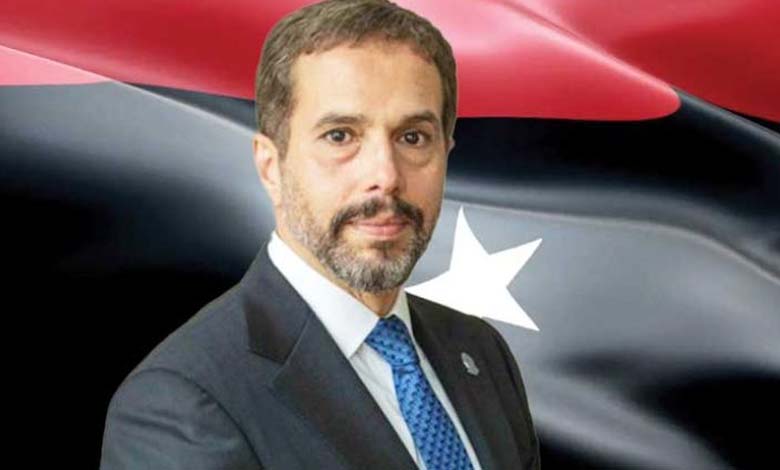Mohammed El-Senussi: Heir to the Throne and a Potential Solution for Libya’s Crisis?

Following years of significant political crises and ongoing disputes aimed directly at disrupting Libya’s political life, the situation in Libya remains far from resolution. Since the revolution that overthrew Colonel Muammar Gaddafi in 2011, Libya has been plagued by the presence of militias and forces that have significantly impacted public and political life.
Calls for Dialogue
During this decade-long turmoil, several political figures have emerged in Libya with the aim of finding a solution to the country’s major crisis. One of the latest names to appear on the Libyan political scene is Prince Mohammed El-Senussi, from the royal family that ruled Libya before Gaddafi’s regime.
Prince Mohammed El-Senussi has called for direct dialogue in Libya among the conflicting parties. From Turkey, the prince is conducting intensive meetings with tribal leaders, civil society activists, and political parties to seek solutions to the current crisis in Libya.
In his recent meetings with members of the dialogue committee that participated in the Geneva Forum, El-Senussi emphasized that “no legitimacy is derived except from what the Libyan people approve, and he is continuing his efforts to bring peace and stability to the country, with the constitutional monarchy being the guarantor for all components of the people striving for a state of institutions and law.”
Concerns Over the Return of Monarchy
El-Senussi’s recent calls have sparked fears of a revival of the constitutional monarchy movement in the country, especially since he is the current Crown Prince of Libya, and Gaddafi had ousted his father from the throne.
El-Senussi stated that “the movement he launched is facing a campaign from some to disrupt it with fake news.” There is increasing talk in Libya about the prince’s imminent arrival in the country to engage in direct dialogue with various Libyan factions.
Ashraf Bouduwara, Chairman of the Preparatory Committee for the National Conference to Activate the Independence Constitution and the Return of the Constitutional Monarchy in Libya, said that “the current community consultations and discussions led by Senussi pave the way for a comprehensive national dialogue that does not exclude any parties in Libya.”
El-Senussi’s spokesperson explained that “this process is a true expression of the Crown Prince’s vision for Libyans to be the leaders of the solution in their country. He is keen to ensure that these talks, which will soon move to Libyan soil, are a prelude to achieving the lost peace and saving the country from the imminent danger of fragmentation threatening its unity and existence.”
Differing Perspectives on Monarchy’s Return
Libyan political researcher Mehdi Kasbar argued that Prince Mohammed El-Senussi knows little about the current happenings in Libya, having been in exile since childhood. He is merely the grandson of King Idris I, who ruled Libya from 1951 to 1969 before being overthrown by Gaddafi. Kasbar noted that El-Senussi’s repeated claims of being the legitimate heir to the Libyan throne present him as a peacemaker aiming for a national dialogue to “save our country from the woes of wars, discord, and division.” However, Kaspar suspects that El-Senussi has clear ambitions to restore the monarchy in the country.
Kasbar further noted that the return of the monarchy remains highly doubtful, as the popularity and symbolism of the royal family in Libya’s history are insufficient. Harshaoui warns against the political exploitation of a royal figure that could be used “as a tool.”
On the other hand, Libyan political analyst Hussein Muftah believes that Prince El-Senussi could play a more interesting role if he conditions his return on balancing the Libyan political class to push forward the adoption of a new constitution aimed at reinstating the monarchy.
Muftah added that Libya’s political life, governed without a constitution since Gaddafi’s fall in 2011, has indeed reached an impasse, marked by a decade of disagreements and external interventions. This has become more evident recently with the unsuccessful UN attempts to resolve the crisis, thus bringing forward names like Mohammed El-Senussi.












